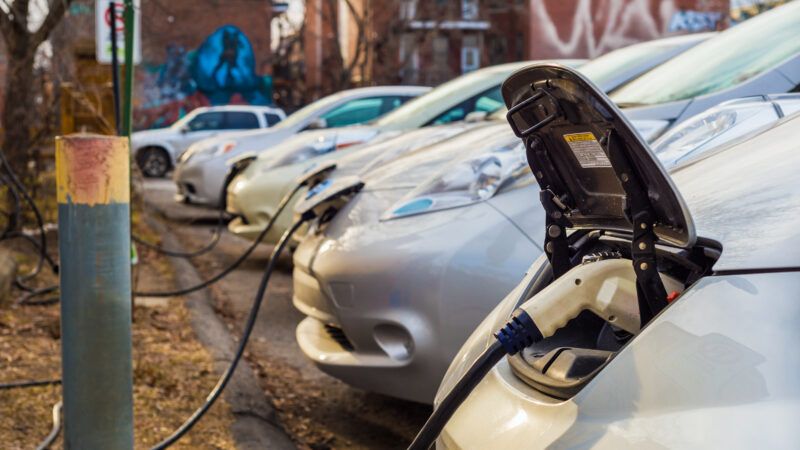Buy American Falls Short on U.S. EV Production and Risks a European Trade War
The Buy American program, used to encourage the buying of American made electric vehicles, not only limits access to EVs but risks a trade war with the E.U.

The Buy American program created by the Inflation Reduction Act gives Americans tax credits for purchasing electric vehicles (EVs) manufactured in the United States, Canada, or Mexico. However, these tax credits will not only be paid for by taxpayer dollars, they also stand to ignite a trade war with the European Union.
The majority of EVs are manufactured in China, followed by Germany and the United States. Regarding the minerals used in lithium batteries, the U.S. is at a disadvantage. In 2020, the U.S. ranked 15th in supplying battery materials, with the top three countries being China, Australia, and Brazil. The International Energy Agency notes that "the top three producing nations control well over three-quarters of global output." Biden's corporate welfare policy requires batteries to derive 40 percent of their mineral components from a mine in the U.S. or a country with which the U.S. has a free trade agreement. However, only five countries among the top 25 producers of minerals used in EV batteries have a free trade agreement with the U.S.
The U.S. could conceivably increase its mineral output with regulatory reform, says Scott Lincicome, director of general economics and trade policy at the Cato Institute. "The big problem is on the regulatory side, particularly on the permitting side of state-level equivalents….this makes mining and processing rare-earth materials here very difficult."
The Buy American program also risks trade conflicts. E.U. French President Emmanuel Macron went so far as to say, "We need a Buy European Act like the Americans. We need to reserve [our subsidies] for our European manufacturers." With the U.S. and Europe trending towards protectionism, Lincicome says restrictions will inherently "reduce adoption and consumption of whatever is targeted."
Another fear that comes with protectionism is the retaliatory environment it creates. "Protectionism gets nasty, it gets political, and it spirals, and it's very difficult to stop the cycle," says Lincicome. Should a trade war begin over EVs, it could expand to other products, driving up prices.

Show Comments (16)